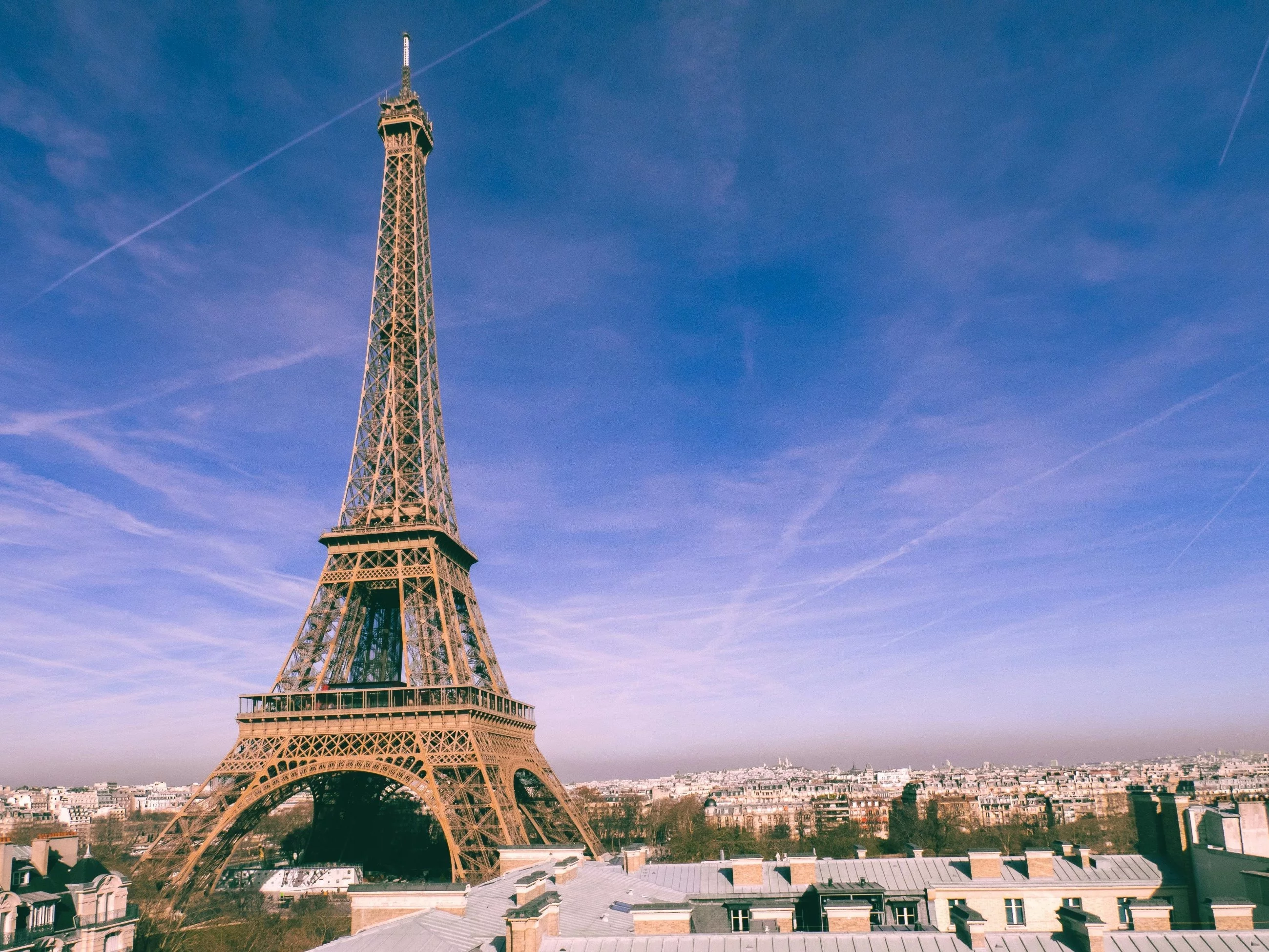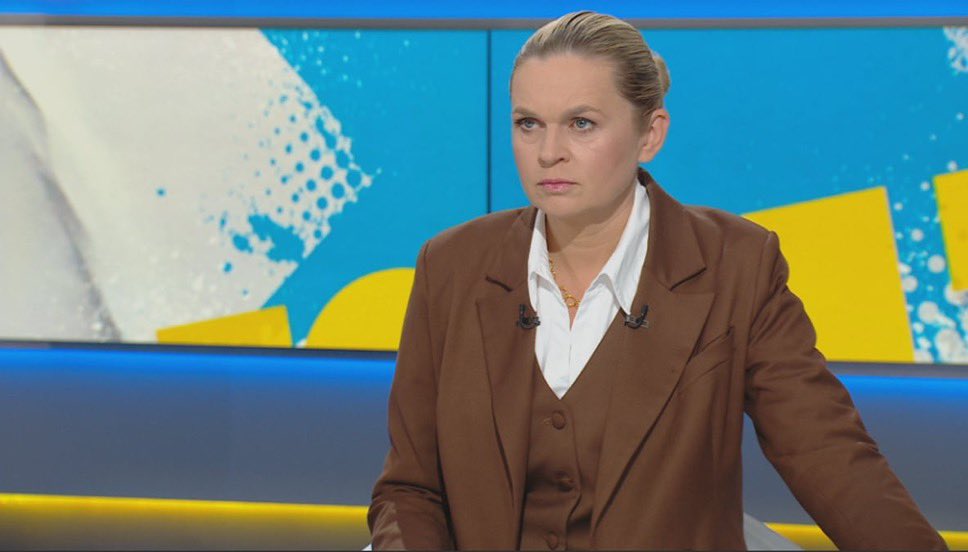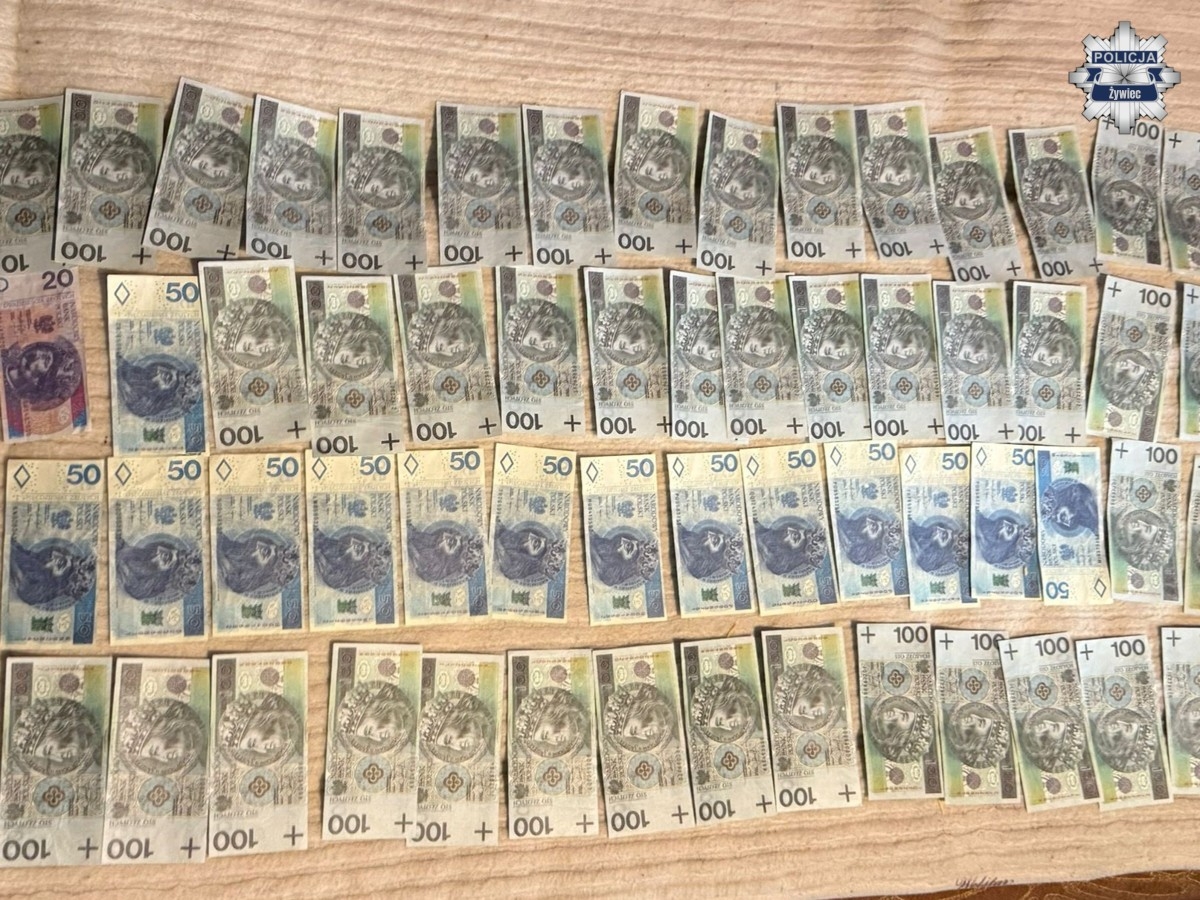Mikołaj Wozniak, Konrad Falkowski
1.08. Zipse and Blume inform the EU against a sharp course against the PRC
Voices of opposition to EU anti-Chinese policy leaders German technological giants could be heard many times – so many were recalled in various editions of the "Review". They have frequently criticised the European Commission's actions in the context of anti-subsidy investigations and provisional countervailing duties. besides this time, the CEOs of BMW and Volkswagen did not refrain from making further critical statements.
Oliver Zipse, CEO of BMW, stated in early August that the introduction of fresh tariffs on cars produced in China hit not only Chinese manufacturers but mainly European automotive companies. He besides raised the issue of the European Union's green transition, stressing that it is "largely based on natural materials and technologies originating in China". On the another hand, Oliver Blume, Volkswagen's CEO, pointed out that the Chinese were open to consultations and discussions, even though they identified the European Union's actions as "unlawful". Furthermore, as he himself pointed out, he was “deeply involved” in the full matter. This was demonstrated by contacts with different countries in the EU, even before the July vote. We besides wrote about this non-binding vote by the associate States of the Union in July "ReviewIt’s okay. ”
In the article "Financial Times", by Patricia Nilsson, the reasons why the heads of the largest German automotive companies are skeptical of the European Union's policy are presented. The main origin is financial issues and, in particular, declining profits. Firstly, emerging Chinese automotive companies are displacing German brands from the Chinese market, which has been ‘most important’ for them so far. Secondly, the trade war between the European Union and China will not improve this situation — on the contrary, it can widen the gap, leading to even greater losses for German companies compared to erstwhile years. Therefore, directors specified as Zipse and Blume are trying to influence the European Commission's decisions to mitigate China's approach. In their opinion, a more reconciled policy towards the mediate State may be a chance to recover profits. The question is, isn't it besides late for that?
9.08. China declares the EU to WTO
The People's Republic of China, in consequence to the countervailing duties imposed by the European Union on electrical vehicles of Chinese origin, decided to lodge Complaint to the planet Trade Organisation (WTO). The Chinese Ministry of Commerce reported on 9 August that the EU investigation and its results are unfounded and violate WTO rules. A fresh EU provisional countervailing work case was so opened. Ministry statedthat these actions aim to "protect the improvement rights and interests of the electrical vehicle manufacture and cooperation in global green transition". In addition, China one more time called on the European Union to "immediately correct erroneous practices and to jointly keep the stableness of economical and trade cooperation between China and the EU, as well as the industrial chain and the supply of electrical vehicles".
Nevertheless, the European Union does not seem to be afraid about China's WTO activities, expressing certainty on the appropriateness and reasonableness of the duties imposed on Chinese electrical vehicles. Moreover, according to the information provided by Reuters, the European Commission, which is an EU executive, plans to proceed its investigation. The European Commission spokesperson stated that "the WTO request does not affect the timing of the anti-subsidy investigation which is pending in the meantime". It is clear from this that the Commission is decisive in its attitude and should not be expected to alleviate its position in the close future.
12.08. Beijing admits that the harm to the Balticconnector was a ‘accident’
In January ‘Review“ We reported talks between the leaders of Finland and the People’s Republic of China about the harm to the Balticconnector gas pipeline linking Finland to Estonia, by a container ship of the fresh New fresh Polar Bear flying the flag of Hong Kong. The Chinese ship became the main fishy in causing the harm that occurred last October. October 8, 2023 Gas transport companies between these countries reported a fall in gas pressure. 12 August this year "South China Morning Post‘ reported that after 10 months, the GOC officially informed the injured parties that ‘the reason was a ship registered in Hong Kong called fresh New fresh Polar Bear’, while blaming for the ‘accident’ storm.
Such an explanation was not very convincing for the Estonian authorities, and especially for Estonia's defence minister, Hanno Pevkur. In interview for the public radio ERR he expressed his scepticism, stating, "I personally find it very hard to realize how the ship's captain could have missed for so long that his anchor would drag on the seabed, but it is the prosecutor's office that must end the investigation." He besides added that Estonia would search compensation from China for the harm caused.
Such words did not pass without an echo in Beijing, which called on Europeans to "focus on the results of the inquiry" on the harm to the pipeline. The Chinese Ministry of abroad Affairs, afraid about the Estonian minister's statements, decided through a spokesperson Lin Jiana calm the public, stressing that China maintains "close contact" with Estonian counterparts to measure the full incident. Lin expressed the hope, both of his and of the People's Republic of China, that all curious parties "will proceed to analyse in a professional, nonsubjective and cooperative manner, and cooperate to guarantee appropriate handling of the incident".
For this moment, it is hard to find clearly what precisely happened – it is simply a task for the prosecution. The key question is: would the Chinese have any interest in deliberately destroying the pipeline linking Finland and Estonia, or was it an unfortunate accident? However, it is certain that the Baltic States, as a consequence of this incident, are aware of the request to strengthen the protection of pipeline infrastructure against akin incidents, and in peculiar against the deliberate actions of which the Russian Federation could, with large probability, be the initiator.
18.08. Echo Meloni visits Beijing
On 18 August, the Chinese paper “Global Times” appeared interview with the ambassador of the PRC to Italy, Jia Guide, who has served since 2023. Commenting on the Italian Prime Minister's visit to China in July, Jia stressed that it was at the perfect moment: "Meloni's first visit to China is very “right in time”, resulting in the words of the Italian Prime Minister of the importance of the PRC and the signing of the Action Plan for the period 2024–2027. This plan aims to strengthen a comprehensive strategical partnership between the 2 countries, as further described in the erstwhile edition "ReviewIt’s okay. ”
When asked about this plan, Jia stated that it was a "breaking document" that would aid "to deepen Chinese-Italian relations in the face of a fresh situation, supply organization guarantees and guidelines for the healthy and unchangeable improvement of bilateral relations in the coming years". The Ambassador added that the plan "reflects the will of both countries to cooperate in Chinese-European relations and in the multilateral arena". The mention to the ‘new situation’ can be interpreted as expanding tensions in relations between the European Union and China. Consequently, the emphasis on China's good bilateral relations with individual EU associate States is intended to weaken the anti-Chinese course of Brussels.
Another crucial subject raised in the interview was the prospects for Chinese-Italian cooperation in fresh areas specified as electrical vehicles and renewable energy. Jia Guide, answering the question, acknowledged that both countries "are industrial powers and innovation leaders, and that their cooperation could bring synergies", which can be described as a applicable application of the Chinese wine-win principle. He besides added that cooperation between China and Italy has a "great potential", stressing that it is simply a "continuous process that cannot be seen ending".
An crucial component of the interview was Jia's comment on the words of Prime Minister Meloni, who stated that China is simply a "important partner" in addressing global problems and that Italy can play a key function in creating a sustainable relation between the EU and China. The Chinese ambassador made it clear that Beijing appreciated this position and expressed confidence. He besides stressed that "China and Europe are 2 main forces promoting multipolarity, 2 key markets supporting globalisation and 2 large civilizations that advocate diversity". Jia besides highlighted the importance and position of Italy in the European Union and hoped that Italy would play a constructive function in promoting dialog and cooperation between China and Europe. According to Jia, Italy can aid form the affirmative and unchangeable improvement of Chinese-European relations. This can be interpreted as a proposition that Italy should aim at mitigating the anti-Chinese course chosen by the European Commission at European level.
20.08. The European Commission discloses the value of definitive duties on Chinese electrical cars
For the 3rd time in the last 3 months, the issue of the amount of the Union provisional countervailing duties on Chinese electrical cars is raised. This time, as the European Commission assures, they have been established Final value. Re-adjustments were made to the percent of these duties, which means that they have been reduced somewhat one more time compared to the proposals of June and July.
The European Commission’s press release of 20 August provides the following justification: ‘This draft decision takes into account comments received from curious parties on provisional countervailing duties, published on 4 July 2024, as well as the completion of a number of investigations that have not been finalised at the provisional stage.’ In addition, it was noted that ‘the disclosure of the draft definitive findings is an intermediate procedural phase of the trade defence investigation’. As a result, ‘interested parties’ can inactive make their comments and doubts known. The Communication besides states that, although the task is simply a ‘sufficient arrangement’, it is inactive possible to amend it ‘based on the legitimate comments of stakeholders’.
In any case, the European Commission has one more time presented fresh work rates for Chinese electrical cars. 3 companies were inactive awarded with individual duties: BYD – 17% (a fall of 0.4% compared to July rates), Geely – 19.3% (a fall of 0.6%) and SAIC – 36.3% (a fall of 1.3%). In addition, 2 categories were identified: the first includes another cooperating companies, for which duties are 21.3% (an increase of 0.5%); the second concerns all another non-cooperating companies which were subject to an SAIC rate of 36.3% (also a decrease of 1.3%).
Three additional issues are new. Firstly, the European Commission has set an individual work rate for US Tesla, which exports cars from China – 9%. Secondly, respective Chinese exporters and any joint ventures with Union producers which did not export during the investigation period will be able to benefit from a lower work rate for the cooperating companies. Thirdly, it was decided not to impose retroactive countervailing duties.
Taking into account the comments from stakeholders, the European Commission is expected to submit final findings to the EU associate States that will vote in favour or against and the result of this vote will be binding. As indicated in the communication, definitive duties must be imposed no later than 4 months after the entry into force of the provisional duties and these measures will apply for 5 years. In addition, where justified, it is possible to extend these tariffs.
On the same day China reaction to the European Union decision on countervailing duties. The Chinese Ministry of Commerce press spokesperson, erstwhile asked about the situation, reiterated the erstwhile allegations, accusing the EU of violating WTO rules and mistrusting its own values, specified as economical freedom, justice and transparency. Metaphorically, he stated that the actions of the Union were "in fact "unfair competition" in the name of "fair competition". He stressed that China had provided all the essential documentation to the European Commission, but according to the Chinese side, Beijing's views were not full taken into account erstwhile establishing definitive tariffs.
China abandoned the EU's continuation of the incorrect policy, claiming that the facts utilized in the investigation were "one-sided" and were not "commonly recognised by both parties". To conclude, the Ombudsman stressed that China is "strongly opposed" to this decision and is "deeply concerned". He besides expressed hope that the EU would "meet China halfway", adopt a "reasonable and pragmatic attitude", and that both sides would velocity up discussions on appropriate solutions to avoid further trade friction.
There was besides a typical "soft threat" in which the spokesperson announced that China would take "all essential measures" to defend "justified rights and interests of Chinese companies". Looking at the current firmness of the EU enforcement exercise, it can be expected that the EU will keep a firm position and Chinese hopes and threats may prove to be ineffective.
21.08. Anti-subsidy investigation of the PRC on European milk products
The Chinese retaliation, or the mentioned "soft threat", came very quickly. On 21 August, the day after the European Union announced fresh tariff rates for Chinese electrical cars, Beijing announced beginning an anti-subsidy investigation of countervailing measures on imports of milk products from EU countries. This investigation, conducted by the Chinese Ministry of Commerce, was initiated at the request of 2 Chinese manufacture organisations: China Dairy Association and China Dairy manufacture Association.
The authoritative Communication announcing the anti-subsidy investigation on imports of milk products from the European Union states that "the products under investigation have received subsidies from EU governments and its associate States, and there are a full of 20 grant projects that the EU dairy manufacture can benefit from". The investigation covers 2 main areas: firstly, grant projects under the EU Common Agricultural Policy and secondly, grants from circumstantial European countries, including Ireland, Austria (listed twice), Belgium, Italy, Croatia (also twice), Finland (three times), Romania and the Czech Republic.
The investigation concerns circumstantial milk products imported from the EU, in peculiar fresh cheese and curd, processed cheese, mould cheese, unconcentrated and unsweetened milk and cream. According to a communication from the Chinese Ministry of Commerce, the investigation is to be concluded within 1 year, although it is possible to extend this deadline by an additional six months if necessary.
Ombudsman of the European Commission, Olof Gill, responding to the Chinese investigation of countervailing duties on milk products, stated: "The Commission will now examine the proposal and follow closely the proceeding in cooperation with the EU manufacture and associate States". He besides noted that the EU enforcement "will firmly defend the interests of the EU dairy manufacture and the common agricultural policy and, if necessary, intervene to guarantee full compliance with WTO rules".
A akin position was expressed by the European Dairy Association, stressing that EU agricultural subsidies are in line with the WTO rules. In turn, the Belgian dairy group Eucolait went 1 step further, condemning the Chinese investigation. It was pointed out that "at a time erstwhile food safety is simply a priority, it is clearly unfair for food to be sacrificed in an industrial dispute concerning electrical vehicles". Eucolait called on the European Commission to act rapidly at the highest level to resolve this dispute.
29.08. China abstains from the EU brandy investigation
At the end of August, Beijing announced that it had not yet planned to introduce provisional duties on European brandies, thus beginning the "window" to talks in the atmosphere of tense relations between the EU and China. We mentioned the Chinese anti-dumping investigation in the January edition "ReviewIt’s okay. ” The first announcement planned that the investigation would proceed until 5 January 2025, with the anticipation of extension in case of "special conditions".
W statement The Chinese Ministry of Commerce was reported to have found that European brandy distributors sold their products on the Chinese marketplace below marketplace prices. The preliminary findings of the investigation show that dumping had a serious impact on the local industry, threatening it with crucial injury. It was besides found that there was a causal link between dumping and the hazard of these injury. Dumping margin estimated 30.6% to 39%.
This situation is indeed unusual, given the ongoing trade conflict between Brussels and Beijing. Reuters He cited the words of an analyst from Barclays who believes that China's actions are part of a "negotiation tactic". This explanation seems to be most logical — China may effort to prepare the ground for the negotiations on customs duties on Chinese electrical vehicles, hoping that any concessions on their part will prompt the European Union to do akin things.
It is peculiarly interesting that Beijing's sanctions on brandy would affect France the most. It is worth recalling that during Xi Jinping's May visit to Paris, French president Emmanuel Macron thanked him for his "open approach" to the issue of duties on French alcohol, suggesting that China can now number on French intervention. France's influence on EU policy is considerable, and possibly Beijing is counting on Macron to ease the position of Ursula von der Leyen and the European Commission.
However, according to the European Commission’s spokesperson, specified intervention is improbable to change the current course. erstwhile asked about the anticipation of linking the brandy investigation to the customs decisions on Chinese electrical vehicles, he concluded that both issues were ‘separate’ and that the improvement of 1 would not affect the final result in the other. This shows that the European Union is not going to give way to China's negotiating force on this issue.
29.08. The Dutch Government plans to restrict exports to China of advanced semiconductor technology
August 29 Bloomberg published an article informing that the Netherlands is seeking to restrict the repair and maintenance of semiconductor equipment by ASML Holding NV in China. specified a step could be a serious blow to the People's Republic of China, which seeks to lead the global chip industry. According to Bloomberg, the government of Prime Minister Dick Schoof, who took office on 2 July of that year, is improbable to renew any ASML licenses for servicing and supplying spare parts in China, whose validity expires in late 2024. Anonymous manufacture sources claim that these restrictions will most likely include the most modern deep-violet lithography (DUV) machines produced by the Dutch technological giant.
On August 30, the Dutch Prime Minister, Dick Schoof, addressed the issue of ASML and exports of semiconductor technologies, markingthat the government will consider ASML's economical interests in deciding on further regulation of technology exports to China. Schoof stressed: "We have talks, good conversations, and we are very closely looking at the economical interests of ASML, which must be considered in the context of another threats, and these interests are highly important." He besides added that "ASML is an highly important, innovative manufacture for the Netherlands and should not endure under any circumstances". Schoof warned that a complete omission of the company's interests could harm its global position.
The Prime Minister decided not to comment straight on Bloomberg's reports from the erstwhile day regarding possible restrictions on repair and maintenance of equipment in China. However, his message clearly shows that the Dutch Government is aware of the risks posed by the regulation of ASML's activities on the 3rd largest marketplace for this company. Any losses resulting from failure of access to the Chinese marketplace may have serious financial consequences for ASML, making it essential to conduct careful and thoughtful talks between the government and the company.













